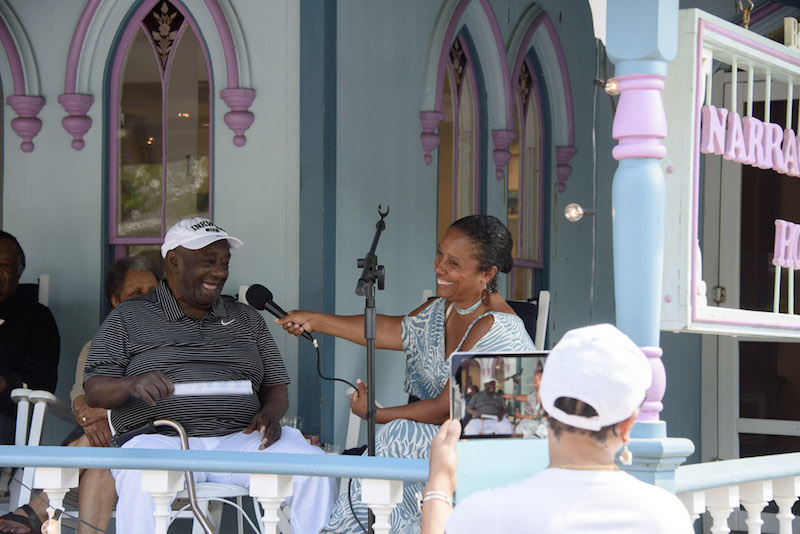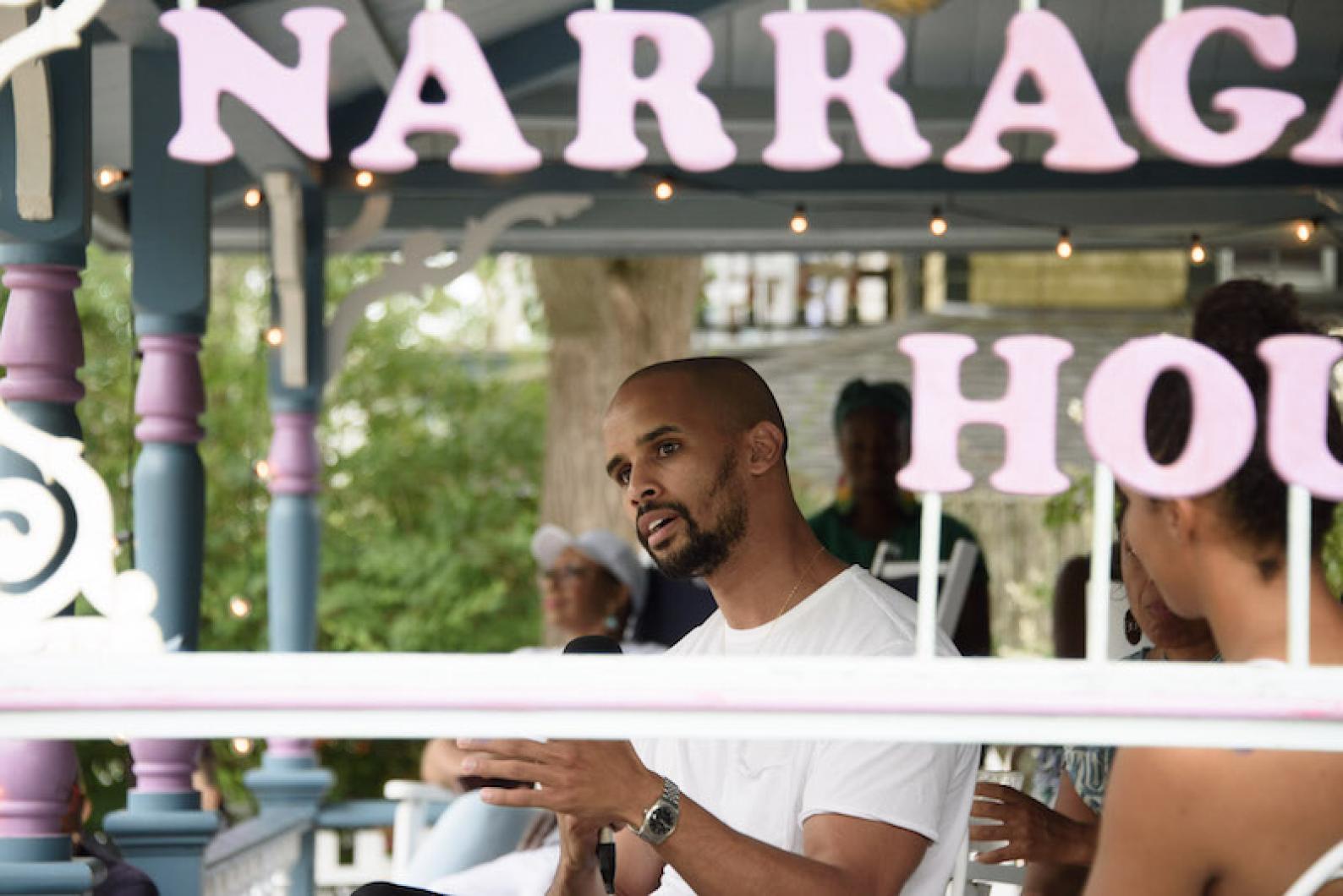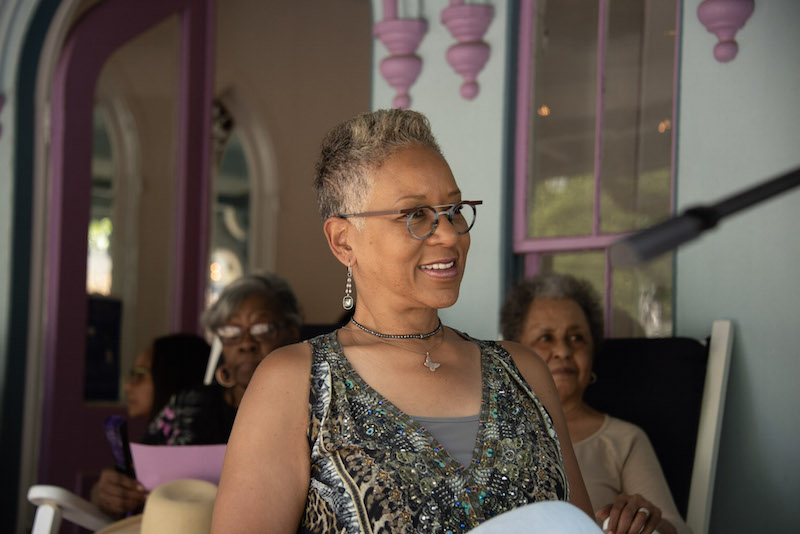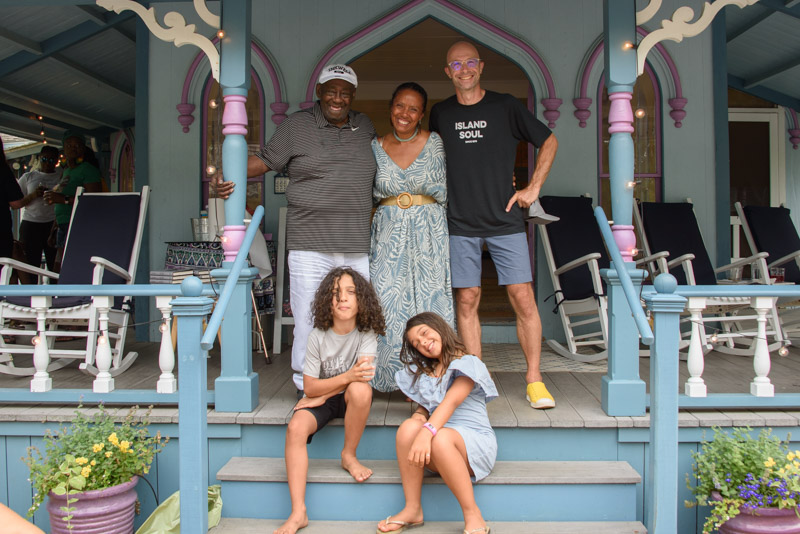Over 45 people gathered at the Narragansett House in Oak Bluffs Saturday to celebrate Juneteenth, and its new status as a federal holiday. The event began with a communal rendition of Lift Every Voice and Sing, often referred to as the Black National Anthem.
The audience then heard from three speakers, telling their life stories about growing up black in America.
Katrina Adams, professional tennis player, former president and CEO of the USTA and author of Own the Arena, spoke about her time on the tennis circuit.
“I didn’t know tennis wasn’t a black sport,” she said, referring to her introduction to the sport as a child. “My program was black, my instructors were black, the net program I went to was black, the first tournament I played was the ATA nationals which was mostly black.”
Ms. Adams confessed that she didn’t realize tennis was a predominately white sport until she started playing on the wider circuit.
“I was like, where is everybody,” she said. As the crowd laughed, she clarified: “Because I was the only one.”
“My parents were very protective about talking about racism,” she added. “I look back and realize I wished they talked more about it. But I was fortunate I never really experienced overt racism. If it was there, I ignored it.
Ms. Adams concluded with messages she hopes readers take away from her book.
“Own your identity,” she told everyone. “Never step down or stand down from who you are and what you represent and who you represent. At the end of the day, it’s about diversity of thought.”

Leon Van Dyke, an 87-year-old civil rights activist and the father of the owner of the Narragansett house, Kahina Van Dyke, began his talk with what Juneteenth means to him.
“It’s also to some extent [about] recognizing the contribution that our ancestors made to bring us here,” he said. “We cannot forget that we must make our schools remember by putting it in the curriculum. I, being born in 1934, my family had to take me and teach me how to act so I wouldn’t offend racist white people.”
During the event, cars slowed down as they passed by the house, rolling down windows to catch a snippet of the conversation. People walking by would stop too, some taking seats to listen in.
Mr. Van Dyke concluded his talk with a powerful message.
“But we fought back and we must never forget that,” he said. “That’s why it’s so important that we are able to teach our kids that you have role models, you have men and woman who throughout the history of this country . . . who have always resisted. We have always resisted, there has never been a time when we haven’t resisted . . . and we have always had allies and we must not forget that.”
Kahina Van Dyke celebrated her father after he finished.
“This is my warrior father everybody,” she said. “If you ever wonder where I got it from, now you know.”
The event ended with a look to the future in a conversation with Cole Brown, the 25-year-old author of Greyboy.
“I don’t know how on earth I’m going to follow the last two people,” he said with a smile. “But I’m going to do my best.”
Mr. Brown spoke about his book and his own experiences about being black in predominately white spaces. He recalled lessons his parents taught him as a child.
“Respect and discipline were sort of shown and demonstrated in very sort of concrete ways,” he said. “You know, say Mr. And Mrs., shake your hand this way, open the door for us or else.”
He said his parents were doing this to help him. “My parents were not strict, just for strictness’ sake, but because those were lessons that would be important for a black man in this world in order to fight for the benefit of the doubt, which I otherwise would not be afforded.”
Although the conversations were at times somber, the mood of the day was also celebratory.
While listening to the speakers, the audience sipped hibiscus tea and snacked from a tasting menu. There was a sense of community as people mingled and laughed over similar sentiments. By the end, the event became a conversation as everyone joined in with comments and hums of agreement, celebrating the day that Juneteenth became a federal holiday.










Comments (2)
Comments
Comment policy »